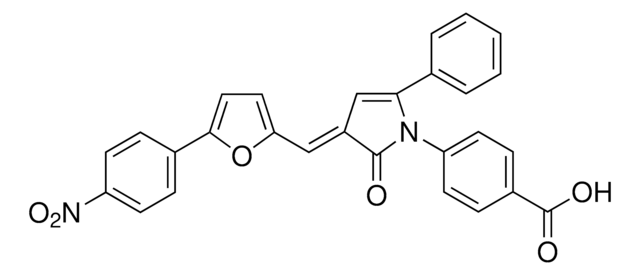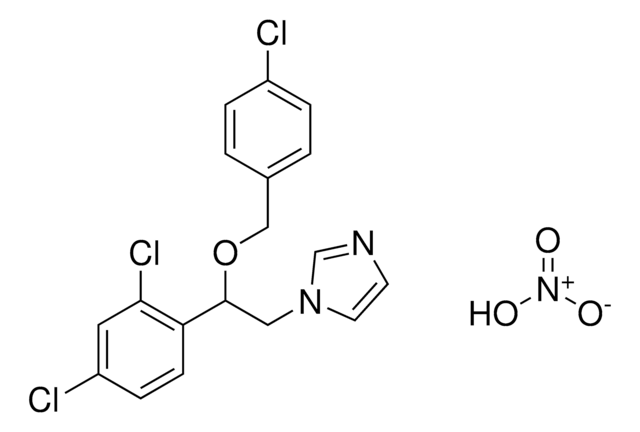E2375
Emetine dihydrochloride
Synonym(s):
6′,7′,10,11-Tetramethoxyemetan dihydrochloride
About This Item
Recommended Products
Quality Level
antibiotic activity spectrum
parasites
Mode of action
protein synthesis | interferes
storage temp.
2-8°C
SMILES string
[H][C@@]12C[C@H](C[C@@]3([H])NCCC4=C3C=C(OC)C(OC)=C4)[C@@H](CC)CN1CCC5=C2C=C(OC)C(OC)=C5
InChI
1S/C29H40N2O4.2ClH/c1-6-18-17-31-10-8-20-14-27(33-3)29(35-5)16-23(20)25(31)12-21(18)11-24-22-15-28(34-4)26(32-2)13-19(22)7-9-30-24;;/h13-16,18,21,24-25,30H,6-12,17H2,1-5H3;2*1H/t18-,21-,24+,25-;;/m0../s1
InChI key
JROGBPMEKVAPEH-GXGBFOEMSA-N
Looking for similar products? Visit Product Comparison Guide
Application
- as a protein synthesis inhibitor to study its effects on human papillomavirus type 8 E2 protein half-life
- to study its effects on the stress granules assembly
- as a chain-elongation inhibitor in puromycin assay for protein synthesis
Biochem/physiol Actions
Features and Benefits
Signal Word
Danger
Hazard Statements
Precautionary Statements
Hazard Classifications
Acute Tox. 1 Oral - Eye Irrit. 2 - Skin Irrit. 2
Storage Class Code
6.1A - Combustible acute toxic Cat. 1 and 2 / very toxic hazardous materials
WGK
WGK 3
Flash Point(F)
Not applicable
Flash Point(C)
Not applicable
Certificates of Analysis (COA)
Search for Certificates of Analysis (COA) by entering the products Lot/Batch Number. Lot and Batch Numbers can be found on a product’s label following the words ‘Lot’ or ‘Batch’.
Already Own This Product?
Find documentation for the products that you have recently purchased in the Document Library.
Customers Also Viewed
Articles
We offer a variety of small molecule research tools, such as transcription factor modulators, inhibitors of chromatin modifying enzymes, and agonists/antagonists for target identification and validation in gene regulation research; a selection of these research tools is shown below.
Our team of scientists has experience in all areas of research including Life Science, Material Science, Chemical Synthesis, Chromatography, Analytical and many others.
Contact Technical Service











